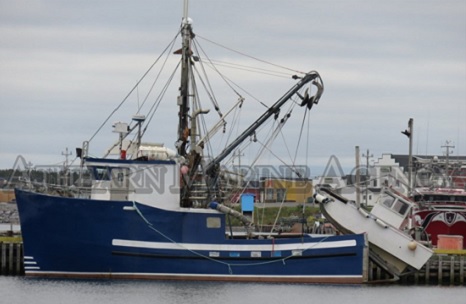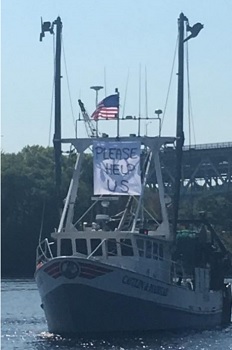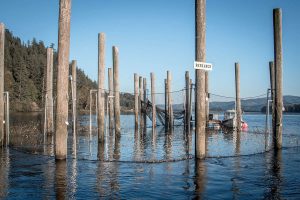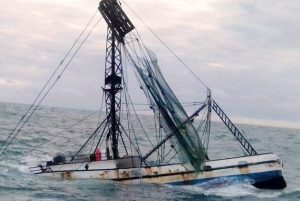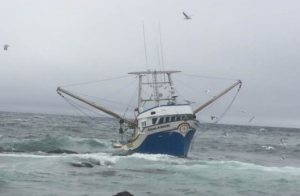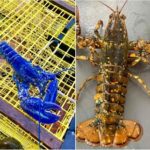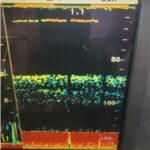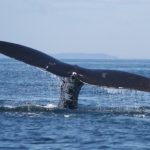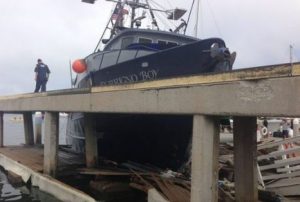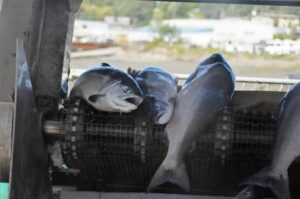Monthly Archives: April 2020
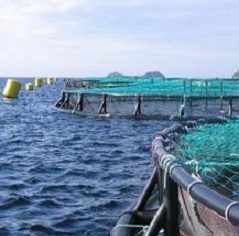
Nova Scotia: Cermaq abandons controversial fish farm expansion, could not find 15-20 sites needed
On Thursday, the Mitsubishi Corp. subsidiary said it could not find suitable locations for the 15 to 20 farm sites it needed to justify a move into the province. “Unfortunately, we were unable to locate enough sites at this time, and have made the decision to allow all of our options to lease to expire,” David Kiemele, managing director for Cermaq Canada,,, It also said it would not proceed without community support.The company said in the coming weeks it will wrap up the feasibility work and close its Guysborough office.,, Meanwhile, Cermaq competitor Cooke Aquaculture said Thursday it is proceeding with its plans to expand in Nova Scotia. >click to read< 13:08
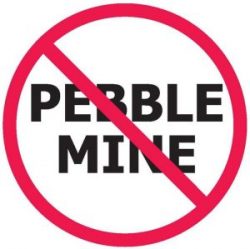
Fishermen concerned over Pebble employee appointed to Board of Fisheries
While communities and fishermen in Bristol Bay are facing an immediate challenge in deciding if and how to hold the $300 million salmon fishery in a few weeks, an appointment to the Board of Fisheries is adding to the stress felt by many in the region.,, Among the governor’s appointments is Abe Williams, who is an employee of the Pebble Partnership,,, Williams was born and raised in Naknek, currently lives in Anchorage, and is a fourth-generation Bristol Bay fisherman. However, his position on Pebble Mine has bothered both commercial and sport fishermen in Bristol Bay. Williams is currently the Director of Regional Affairs for the Pebble Partnership. >click to read< 12:14
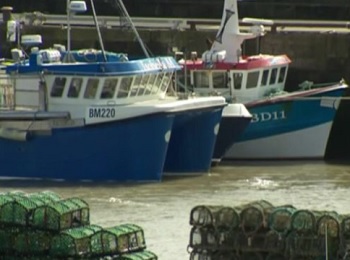
Coronavirus: Shellfish industry calls for government support – Fishermen face bleak year as pandemic bites
The East Yorkshire coast is home to the UK’s largest crab and lobster fishing industry, with about 80% of the catch exported. Fishing has been suspended and exports to China and Europe have become a “zero marketplace”, according to Bridlington fisherman John White. The industry is calling for more support from the government. >click to read< 11:03
Fishermen face bleak year as pandemic bites – The UK fishing sector has been badly hit by the coronavirus crisis, with the collapse of export markets and the shutdown of the hospitality industry leading to most boats being tied up. British fishermen export about 70% of their catch, mainly to continental Europe and Asia. The sharp fall in demand has been a “severe shock”, said Barrie Deas, chief executive of the National Federation of Fishermen’s Organisations. >click to read< 11:05
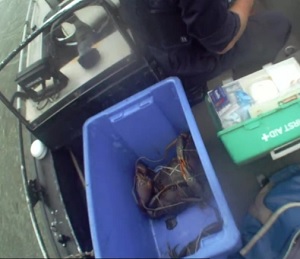
Queensland: Crab pot pincher nipped with $5000 fine
Minister for Agricultural Industry Development and Fisheries Mark Furner said the man was caught after Queensland Boating and Fisheries Patrol officers began investigating reports of people interfering with commercial crab apparatus in March 2019. “This hard-working commercial crabber has had valuable infrastructure interfered with and lost valuable income from someone stealing his mud crabs,” he said. “People interfering with crab pots is one of the biggest complaints that we get from the public and the Queensland Boating and Fisheries Patrol has been cracking down on it through additional patrols and the use of cameras and drones. Our state’s fisheries resources belong to all Queenslanders and it’s our job to protect fish stocks for the future.” >click to read< 10:19
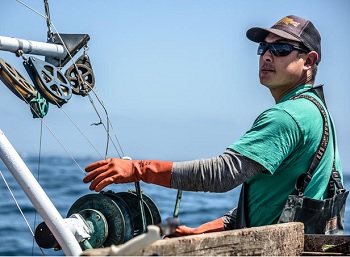
Local Commercial Salmon Fishing Industry Sees Silver Lining Amid Coronavirus Crisis
California’s fishing industry is designated as essential by Governor Gavin Newsom, but their usual markets, restaurants, are all but shut down because of the coronavirus. That’s spelling trouble for local fishermen and women. Still, some believe there’s a silver lining to this crisis. David Toriumi has been commercially fishing the Monterey Bay for almost 16 years. It’s a livelihood full of challenges, from rigorous and expensive regulations to changing ocean conditions. But the coronavirus is like nothing he’s seen before. Toriumi says the impact was slow at first, less people eating out, and then boom. >click to read< 08:44
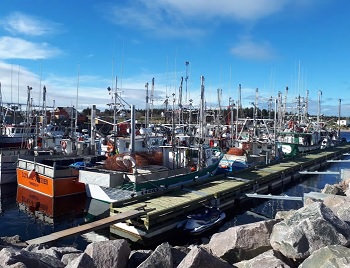
Fishermen in Eastern Quebec want season postponed to avoid Coronavirus outbreak in fishing villages
Leon Keats is set to go out to sea on April 20 to harvest crab in Zone 16A, off Anticosti Island. But the fishing captain wonders how he can do his job while respecting public health guidelines to limit the spread of the coronavirus, and without endangering residents of Kegaska, the village on the Lower North Shore, where he docks his boat during the 14-week period. “It’s unsanitary, and it’s impossible for us to live by the guidelines that Health Canada is asking us to respect right now,” said Keats. “It’s utterly impossible.” Keats and other fishermen in Eastern Quebec are asking Fisheries and Oceans Canada (DFO) to postpone the fishing season to ensure workers and residents of small fishing towns aren’t unnecessarily exposed to COVID-19. >click to read< 07:44
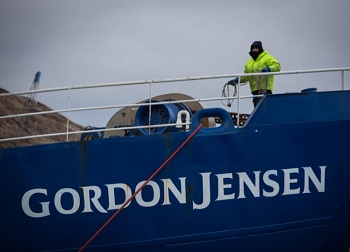
Coronavirus: Togiak herring fishery’s only processor says it aims for “zero impact” to communities
In early March, Icicle Seafoods locked down operations and stopped bringing on new crew members due to the pandemic. It says the workers on board its floating processor haven’t had contact with anyone off the vessel since then.,,, “Our plan is to bring the Gordon Jensen up to Togiak here at the end of the month. We’ll anchor off off shore, and we’ll keep our crew and staff on board the vessel for the duration of the fishery,” he said, adding that Icicle plans to have “zero impact” on the communities.,, Two seine boats and three gillnetters are expected to tap the 80-million pound quota in Togiak this spring. Tim Sands, an area management biologist for the Alaska Department of Fish and Game, said the shrinking participation from processors and fishermen is due to the lack of market for herring. >click to read< 18:33
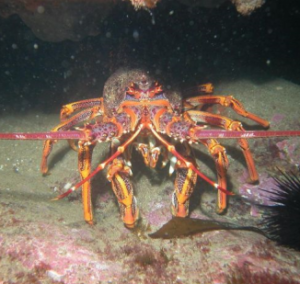
Lobster back on the menu for recovering China
In a welcome sign that life in China returning to normal, tonnes of rock lobster has left Perth for Shanghai in the past few days.The lobster left on return flights after mining billionaire Andrew Forrest and the West Australian government organised the delivery of medical equipment from China.Separate to those flights, it is understood the first air shipment of seafood and other fresh produce under the Morrison government’s $110 million rescue package for exporters will depart on Thursday.The indications China has regained its appetite for high-end Australian produce comes with local consumers set to enjoy an abundance of seafood at rock bottom prices on Good Friday. >click to read< 16:39
Athearn Marine Agency Boat of the Week: 50’x20’6″ Herring Seiner with Fed Class A Herring Permit
To see specifications, information and 31 photos, >click here< Vessel is in good condition. To see all the boats in this series, >click here< 11:38
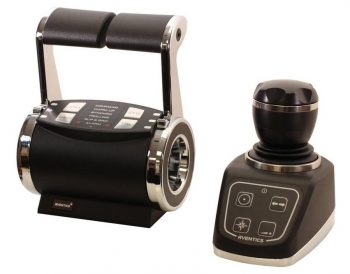
Reeling in the Benefits of Upgraded Boat Controls With An Electronic Control System
The Challenges of Push-Pull Cable Systems. When the bluefin tuna season ends in Gloucester, it’s only getting started in North Carolina—drawing northern fishermen to the tumultuous seas of the Outer Banks. The ensuing competition between northern fishermen and their southern counterparts spawned the spin-off series, “Wicked Tuna: Outer Banks,” which spotlights Marciano and several other boats from the original series. Being a contender in this high-stakes competition requires the latest in boat control technology, something Marciano needed to upgrade. As fate would have it, Steve Vincent, Manager of Business Development Marine at Emerson, was a fan of the “Wicked Tuna” series. “When I watched the show, I noticed the boats still integrated mechanical levers,” Vincent says. “Right away, he saw the benefits and possibilities,” >click to read< 10:45
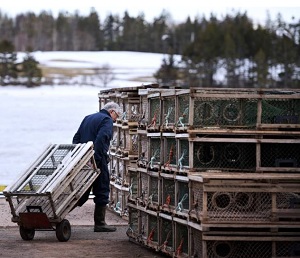
Prince Edward Island: Uncertainty looms over spring lobster fishing season
During a media briefing Tuesday night, Jamie Fox, Minister of Fisheries and Communities said clarity is needed on the future of the Spring fishing season from the federal government. “There is no definitive position, no consensus from any sector in this industry, or any region for that matter, as to what the best answer is. We have heard a variety of opinions from amongst fishers, from buyers, from processors – from all aspects of the sector,” King said during the briefing. “There is no consensus. Some want to go and are ready to go. Some don’t want to go. Some want to have a delay and many don’t know what to think.” The P.E.I. Fisherman’s Association, a key voice for the industry on P.E.I., has not issued a clear call whether or not they would like to see a fishing season proceed, or whether it should be delayed. >click to read< 09:23
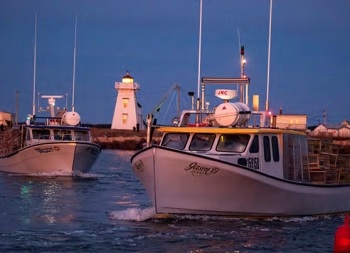 P.E.I. Fishermen’s Association surveying members on when, if spring lobster season should proceed – On Wednesday, the PEIFA posted a notice on its website saying a survey was coming by the end of the day. >click to read< 21:03
P.E.I. Fishermen’s Association surveying members on when, if spring lobster season should proceed – On Wednesday, the PEIFA posted a notice on its website saying a survey was coming by the end of the day. >click to read< 21:03
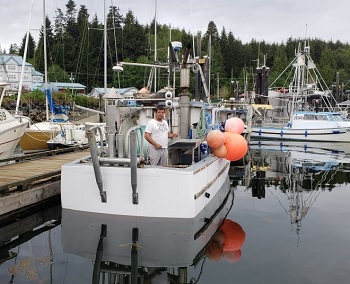
How is Coronavirus impacting BC’s fishermen?
Doug Kostering, a fisherman who docks in Port Hardy, had a two week delay to this start of his halibut fishing this year as the offices that handed out licenses were closed because of the virus. He estimates that two week delay alone resulted in an up to $30,000 loss in revenue. “Fishermen are in an uncertain industry to begin with. Fishermen traditionally take all the risk up front – they take out lines of credit, they take out loans, they do all the work to fix up their boats and get ready for their upcoming season,” said Chris Kantowicz, Skipper Otto’s COO. “And they do all that in hopes that not only will they catch fish, but once they have that fish in hand, that there will be a market for it. It’s a lot of risk and all of it lies with them.” >click to read< 07:06
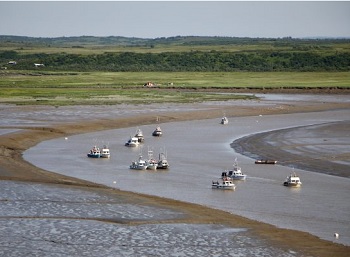
Coronavirus: Dillingham urges governor to close Bristol Bay fishery to protect the community
The City of Dillingham and the Curyung Tribal Council wrote a strongly worded letter to Governor Mike Dunleavy Monday urging him to consider closing Bristol Bay’s massive commercial fishery to protect the community from the coronavirus pandemic. Bristol Bay’s summer fishing season brings with it an influx of thousands of fishermen and processor workers into small communities around the region. The sockeye fishery is the largest in the world. Last year its preliminary ex-vessel value was the highest ever, at $306 million. In the letter, the tribe and the city said that there was no way to limit the communities’ exposure to the virus, even with the current requirement for processors to submit quarantine plans for their workers. >click to read< 17:05
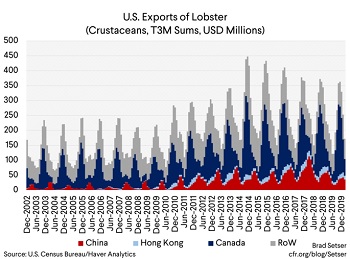
How Effective Have China’s Agricultural and Seafood Tariffs Been?
There is a case that viruses (bird flu, swine fever, and now the coronavirus) have had almost as big an impact on Chinese-American agricultural trade as the trade war. (And more than most want to know on trade in crustaceans) The actual impact of the tariff though isn’t always quite as clear as many think, Take chicken feet (or chicken paws). Guess what really led to a fall in U.S. exports of chicken paws? Bird Flu. There may be a lesson there. Now consider one of the more prominent—at least judging by the press coverage—industries that has been hit by Chinese retaliatory tariffs in the recent trade war: lobster. But there are, in fact, markets other than China for U.S. lobsters, and suppliers other than the United States for China. Given the large two-way trade in lobsters between the United States and Canada,,, >click to read< 16:21
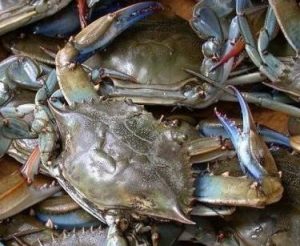
Coronavirus Assistance for Commercial Watermen and the Seafood Industry
The Hogan Administration acknowledges that the seafood industry is an iconic Maryland industry with commercial landing values over $82 million. The seafood industry also contributes over $600 million to Maryland’s economy. Given the economic hardships posed by the COVID-19 pandemic, commercial watermen who are self-employed may be eligible for the following relief programs: Small Business Administration (SBA) Paycheck Protection Program (PPP), Coronavirus Aid, Relief, and Economic Security (CARES) Act Relief Funding, more information, >click to read< 15:07

Coronavirus: Pop-up seafood market at Jersey Shore helps fishermen hurt by restaurant closures
A pop-up wholesale seafood market is helping to keep the fishing industry afloat in an Ocean County municipality. Point Pleasant Beach’s Shore Fresh Seafood Market is collaborating with the Fishermen’s Dock Cooperative to sell the catch — brought ashore on the docks directly behind the business — on its outdoor patio on Channel Drive.,, The next wholesale market is set for this Thursday through Sunday, 10 a.m. through 4 p.m. Offerings include sea bass, fluke, porgies, monk fish and sea scallops. more info, >click to read< 13:49
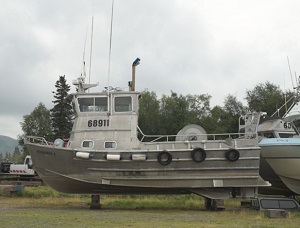
Coronavirus: Bristol Bay community leaders lay out minimum protocol needed to allow salmon season
Leaders of several major community organizations in Bristol Bay have issued a list of minimum protocols they expect to be in place before the commercial salmon fishery can take place this summer. Among other the protocol listed, fishermen and other seasonal workers would undergo a physical exam including a COVID-19 test with a negative result no more than 48 hours before traveling to the region. After arriving in Bristol Bay, the individuals would be transported to a quarantine location and remain in quarantine until a follow-up negative COVID-19 test is confirmed. The leaders listed out other expectations, including weekly health screenings, for the seafood industry to establish as minimum protocol for the 2020 season. >click to read< 11:12
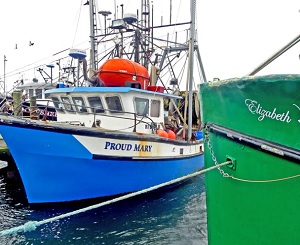
Coronavirus: Rhode Island’s commercial fishery and aquaculture industry hit hard
Until the COVID-19 pandemic, the Rhode Island aquaculture industry had been expanding. In 2019, the the total value of shellfish crops was $5.8 million and the industry employed about 200 people. Coastal Resources Management Council Aquaculture and Fisheries Coordinator David Beutel said the consequences of the evaporation of the major markets for shellfish are now being felt at all levels of the industry. “They can’t sell product because most of it goes to restaurants,” he said. The fin fishery is also suffering. Christopher Brown, executive director of the Rhode Island Commercial Fishermen’s Association, said the impact varied according to vessel size and catch. Social distancing is difficult, if not impossible, on a boat. >click to read< 10:17
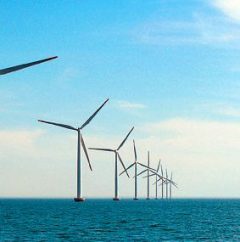
Fishing groups wary of rapid offshore wind development plans
As offshore wind moves up the coast of New England, efforts are underway to make sure the region’s fishing interests have a seat at the table early in project development. An alliance of industry and academic stakeholders is promoting the need for research and best practices as offshore wind takes hold in waters where fishing has long been an economic anchor. Fishing groups have several concerns about the potential for boating obstacles and ecological impacts. A dearth of research makes the industry hesitant as it prepares for a slew of projects that could overwhelm their operations. Above all, fishing stakeholders want to be included from the start of wind project development. >click to read< 09:07
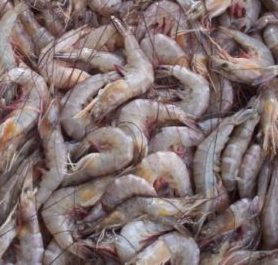
Louisiana Shrimp Association donates shrimp to Second Harvest Food Bank
A food pantry in New Orleans has received nearly 2,500 pounds of shrimp to help families in need during the COVID-19 pandemic. Second Harvest Food Bank is the recipient of the donation, announced Friday by Lt. Gov. Billy Nungesser and the Louisiana Seafood Promotion and Marketing Board. The donation, which will cover a few pounds each for families, was given by Ronnie Anderson and David and Kim Chauvin, owners of Bluewater Shrimp Company, based in Dulac, Louisiana. >click to read< 08:28

Coronavirus: Fed temporarily waves at-sea observer requirement on Canadian fishing vessels
The Department of Fisheries and Oceans (DFO) says the at-sea monitoring program poses a public health risk for both observers and crews on board. An order immediately suspending at-sea observer coverage was signed by federal Fisheries and Oceans Minister Bernadette Jordan on April 2 and will remain in effect for 45 days. Some inshore fisheries in Canada do not require at-sea observers, but they are now routinely present on larger vessels as a licensing condition in many Canadian fisheries. Fishing companies pick up the cost of the observers, who collect scientific data and monitor fishing activity and compliance with the rules. >click to read< 07:21
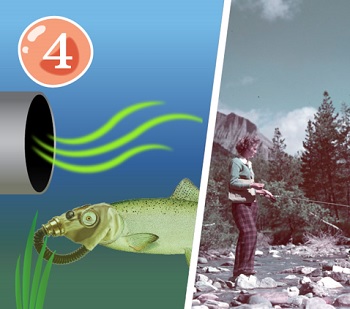
The Deadly Gauntlet Fraser Salmon Must Travel to Come Home
The rockslide at Big Bar just north of Lillooet was a natural disaster that blocked the Fraser last summer, making it impossible for many returning salmon to return to their natal spawning streams. Of the five million sockeye expected to return for example, only about 300,000 made it to their spawning grounds. The only upside of the disaster is that it’s shining a new light on what we call the Gauntlet: the tortuous path that all six species of Pacific salmon must run every year as they return from their migrations on the high seas to fresh water streams across the 21 million-hectare Fraser River watershed. The rockslide was an act of nature that with engineering expertise and brute force can eventually be fixed. But as the Gauntlet illustrates, what will prove much harder is to save Fraser salmon from the trajectory of decline they were already on before the rockslide happened. >click to read< 21:26
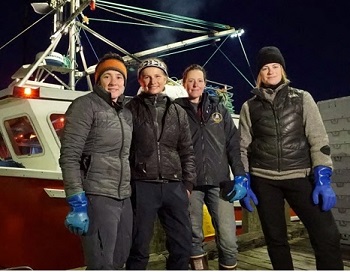
Coronavirus: Lunenburg lobster boat captain sells directly to consumers to stay afloat
It was shaping up to be one of Gail Atkinson’s best seasons ever, but then COVID-19 struck and the Lunenburg, N.S., lobster fisher had to get creative. Atkinson, who captains the Nellie Row, decided to keep her traps in the water even as prices plummeted. Now, she not only catches lobster, she also delivers it to customers in the Lunenburg area.,,, Atkinson is selling lobster for $8 a pound at the wharf and offering “contactless” delivery for customers near Lunenburg.,, Stephen Bond, co-chair of the Lobster Fishery Area 33 advisory committee, is taking the opposite approach. He applauds what Atkinson is doing, but said it’s not feasible for him given the size of his boat and crew. “There’s the select few, I’ll call them, that are able to follow Gail’s model or a smaller business model working with some of the local community, but it certainly doesn’t cover off the market that we’re missing,” >click to read< 19:55

Captains hope to replace coronavirus-related restaurant closures with direct customers
With their normal markets shrinking amid the coronavirus outbreak, South Coast fishermen are coming up with creative ways to sell their catch directly to consumers. Troy Durr created the Facebook group “South Coast Direct Source Seafood” “A lot of the fish houses are not buying from the boats, which left them in a situation to stop working or figure out their own way to sell,” (Troy) Durr said. The new way to sell is directly off their boats.,, Two boats went out on April 4 and sold lobsters at Union Wharf in Fairhaven for $6 per pound. “Today we had our first sell date,” Durr said in a post, “Two locally owned and operated lobster boats sold out of 600 lbs of lobsters in an hour and a half right at Union Wharf in Fairhaven.” >click to read< 17:03
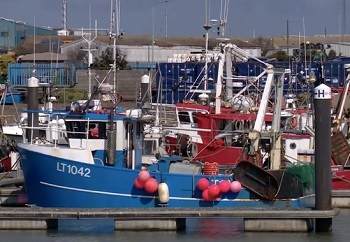
Fishermen across the East say their industry’s on a knife edge due to Coronavirus crisis
At Leigh on Sea in Essex, fisherman Paul Gibson says he’s experienced several challenges over the years, none of which amount to this scale. “The fishing industry is in absolute turmoil, ports have closed because of lack of demand, getting fish to supermarkets or to the continent where in the South East most of our fish goes, the markets have stopped.” Covid-19 follows years of decline in the industry here in the East, but now it could be fatal. Video, photo, >click to read< 16:27
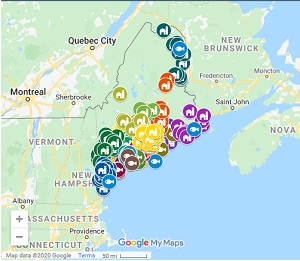
Maine farmers, fishermen find new ways to keep selling products safely
As businesses struggle to stay afloat and keep serving customers, farmers and fishermen are finding ways to keep up selling their products safely. A farmer launched an online initiative and now there is one site with more than 300 farmers, fishermen and other producers all on one interactive map. Click on any of the icons for each business to get details on how to buy products and how to get it. >click to read and use the interactive map for names and locations.< It should continue expanding beyond the region! 15:05
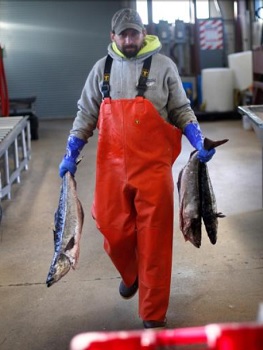
Coronavirus impacts New England seafood industry as wholesale demand fades
The spread of the coronavirus has upended the seafood industry as restaurants close, fishermen tie up their boats and even big-money catches like lobster see lower demand, industry leaders say. Robert Nagle, vice president of Boston-based seafood wholesaler John Nagle Co., said the industry is trying to do all that it can as more fishing boats are tying up because of a decrease in demand. “If a boat can’t get enough money, they can’t pay their bills, they can’t pay their crews, the boat is not viable,” Nagle said. Live lobsters, which are usually sold to restaurants and exported around the world, have been essentially shut down with no one to buy catches, Nagle said. >click to read< 12:03
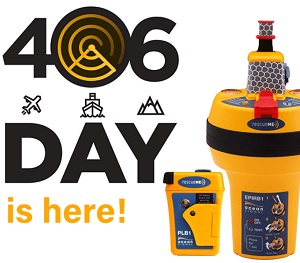
PLBs and EPIRBs: Marine Safety Specialists Join Forces to Raise Beacon Awareness on ‘406Day’
UK marine safety specialists Ocean Signal and Ocean Safety are issuing important advice to boat owners about the benefits and responsibilities of owning a 406 MHz beacon on ‘406Day’ (#406Day20) today, Monday, April 6th.,, As leading suppliers of PLBs and EPIRBs, Ocean Signal and its distributor Ocean Safety have joined forces to raise awareness about the life-saving technology and to highlight safety checks and procedures for beacons as boaters prepare for the season. The annual day was initiated by Ocean Signal’s sister company, Florida-based ACR Electronics, eight years ago to help people understand how to register, use and maintain their beacons correctly. >click to read< 11:12
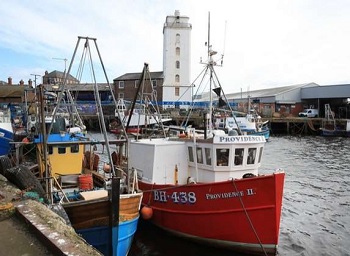
Coronavirus: Eat More Fish! Shoppers urged to support UK fishermen as export markets dry up
With the export markets to Europe and China ruined, restaurants and chippies closed, hospitality shut down and many supermarkets not staffing their fish counters, skippers have decided to keep their vessels tied up. But some are still going out to fish, and more of what they catch is available online or being sold door-to-door.,,, “Groups of fishermen around the UK are setting up websites so they can sell locally landed fish straight to local fishmongers or to households and we’re seeing an increase in the use of fish vans which makes it easier for people to buy seafood too. photos, >click to read< 09:42






